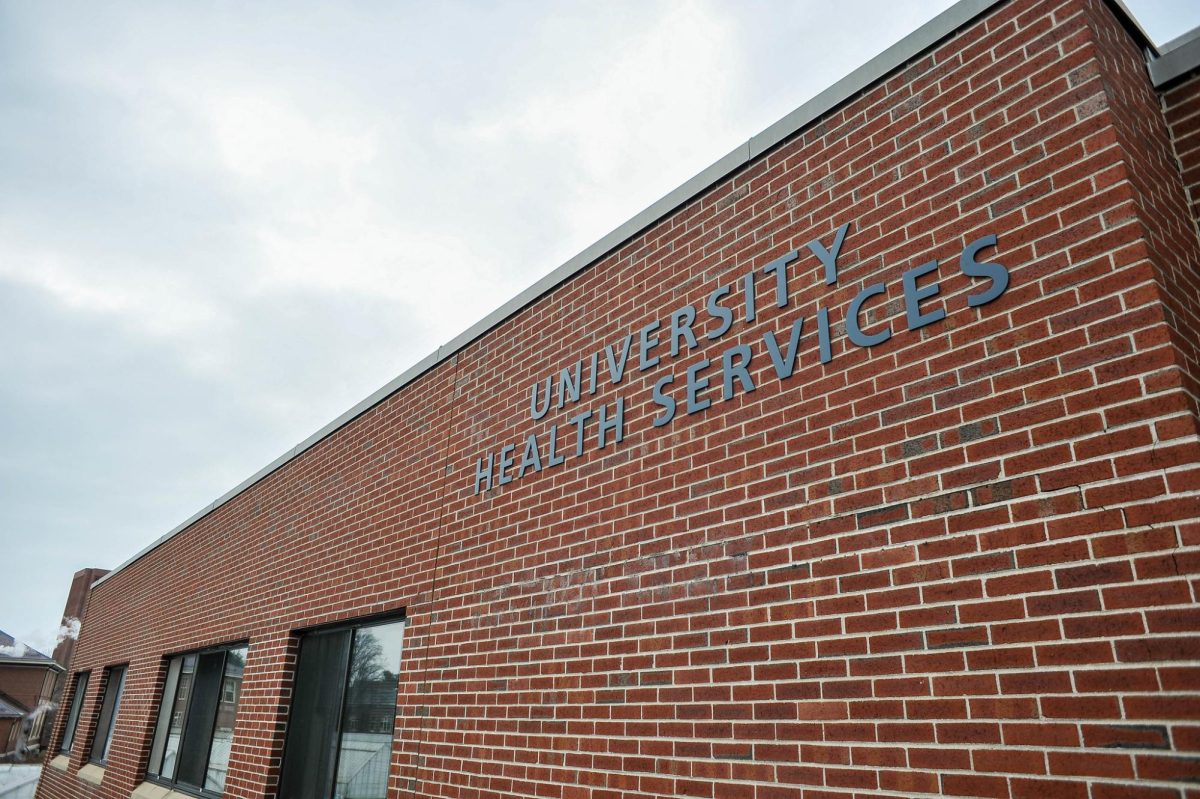Three years after the “great recession” of 2008, economic recovery – both in Massachusetts and nationally – continues at a slow pace. In the rush to address dismally low state revenues, layoffs and consumer apprehension, few state legislators are speaking up about funding for the University of Massachusetts, which finds itself sitting on a precarious ledge.
As The Massachusetts Daily Collegian has reported, over the past two years, University funding suffered massive decreases in revenue. Both a 4.6 percent decrease in its endowment and a $1,500 student fee hike in the past year have attempted to close a state budget deficit of over $600 million. With the 4.6 percent decrease in the university’s endowment from $372,648 to $390,774, UMass fell to No. 146 on The Chronicle of Higher Education’s College and University Endowments list, placing it well behind the likes of the University of Tennessee (87), the University of Kentucky (81) and the University of Alabama system (73).
UMass Amherst’s Alumni Association hasn’t been helping much. The independent organization found itself in desperate straits in the past year, with only two percent of alumni participating, compared to a national average of approximately 11 percent. The Alumni Association became so desperate, in fact, that it opened free membership to every UMass graduate in hope of resuscitating the pulse of its dismal performance.
This new year may bring with it false hopes. Currently, $600 million dollars in federal Medicaid stimulus funds (FMAP) is waiting on legislation before it can be forwarded to the Commonwealth. In a June 18, 2009 memo, Chancellor Holub was optimistic that the FMAP funds could be appropriated by the state and allocated for university funding. A year later, it seems doubtful the University will see any of the federal funds.
In a June 28, 2010 memo to the campus community, Holub regretfully informed the campus community that Beacon Hill will likely allocate $193.5 million in university funding for fiscal year 2011, $46 million less than was received last year.
Just to add insult to injury, stimulus funding is anticipated to end in fiscal year 2012, leaving Massachusetts to deal with structural deficits and dismal state revenues.
“Michael Widmer of the Massachusetts Taxpayers Foundation predicts a decline of over 10 percent in funding for higher education in fiscal year 2012,” said Holub.
Fiscal year 2012 will also bring with it $10 million in commitments in order to satisfy preexisting union contracts. This perfect storm of fiscal setbacks is likely to push UMass closer than ever to the “funding cliff” he has alluded to in the past.
Despite stacked odds, he warned against the pitfalls of finger pointing and urged the University to forge ahead with a renewed sense of cooperation. Holub pointed to the 40 percent upswing in nonresidential enrollment as proof that the University could endure these dire economic times. In all, the figures for the class of 2014 will result in over $4 million for UMass.
The University has also secured over $40 million in research grants from stimulus funding thanks to “cooperation among faculty, staff and administration,” Holub said.
The memo also brings into question the fate of various long term projects dependant on state funding. According to the University website, the Amherst 250 plan to bolster UMass’ faculty by an additional 250 professors may require an extra $30 million that it is increasingly obvious will not come from the state or federal government.
With a growing student body, it is hard to see how the university will succeed in “maintaining and improving its position as a major public research university” when $10 million in contract obligations needs to be conservatively budgeted for.
While Holub’s attempt to bolster campus morale by promoting cooperation and talking up a handful of small victories is laudable, the university needs concrete plans for addressing Beacon Hill’s disregard for funding in higher education. With the planned merge of the College of Humanities and Fine Arts and the College of Social and Behavioral Sciences into the “College of Humanities, Arts and Social Sciences,” and the College of Natural Sciences and Mathematics and College of Natural Resources and the Environment into the “College of Natural Sciences” happening later this year, he has a chance to show that the University can still thrive, despite dwindling funds.
The worst case scenario is that the massive reorganization is used as an opportunity to slash critical academic programs, rather than promote interdisciplinary exchange in a sleeker academic environment.
State and federal officials cannot allow UMass’ impending “funding cliff” to doom the positive momentum the school has made in academic quality in recent years.
While The Massachusetts Daily Collegian editorial board understands the necessity of addressing unemployment and reassuring investors in this time of economic turbulence, there is no doubt that the quality, affordable education offered here is important for the state and region. Instead of allocating funds to bailout institutions responsible for the mishandling of the national economy, why not reinvest those funds with the intent of providing a valuable education to those attending the Commonwealth’s flagship state university.
Too many past generations of UMass administrators and Massachusetts state legislators have grappled with fiscal deficits and then resorted to taking sharp knives to the budget without a second thought. But history has clearly shown that you can’t cut your way into being a top tier-public university.
Now that Holub has had time to establish himself as chancellor, we will see if his vision for UMass has the creativity to prevent cuts from crippling our campus. No one is suggesting the way forward is easy, but Holub’s tenure will ultimately be judged by his response to this economic environment.
At the moment, he is juggling many balls in the air at once; if the administration can find new sources of revenue, lobby more effectively for state funding and streamline the university’s bureaucracy all while continuing to raise our academic profile, UMass’ future will be brighter than most are willing to admit.
Unsigned editorials represent the majority opinion of The Massachusetts Daily Collegian editorial board.







JR Boucher • Sep 9, 2010 at 10:43 am
As pointed out in this piece the Alumni Association lacks relevancy with this discussion and with the alumni in general.
I would guess that they will issue some statement to add to the list of letters that will come from the administration in an attempt to appear part of the solution.
It will be another attempt to show they are more than a website and a line item on the annual budget (the University provides them with significant finding that could be better spend elsewhere).
Such a level of self aggrandizement is SOP for them (note the editorial in the Collegian from 12/2009). They will identify the reasons for their lack of success as everything else but their performance.
This is a time when we could benefit from a forceful and active alumni association. It could serve the purpose as an independent advocate for the University. It could take on the task of rallying students, parents and faculty to advance the causes of the University.
It could – but it won’t because it can’t. As an organization it is sadly unprepared to take on the challenge.
The Executive Director is a career bureaucrat who came from a state regulatory agency who was chosen to take on the sales and marketing challenge of the AA. The competencies needed for her past endeavors are hardly aligned with the challenges of invigorating a failing association tasked with selling itself to the alumni.
The way people see and perceive a job is the way that they do a job.
The AA is invested in having the alumni come to them as bureaucrats would as opposed to reaching out in meaningful ways as leaders do.